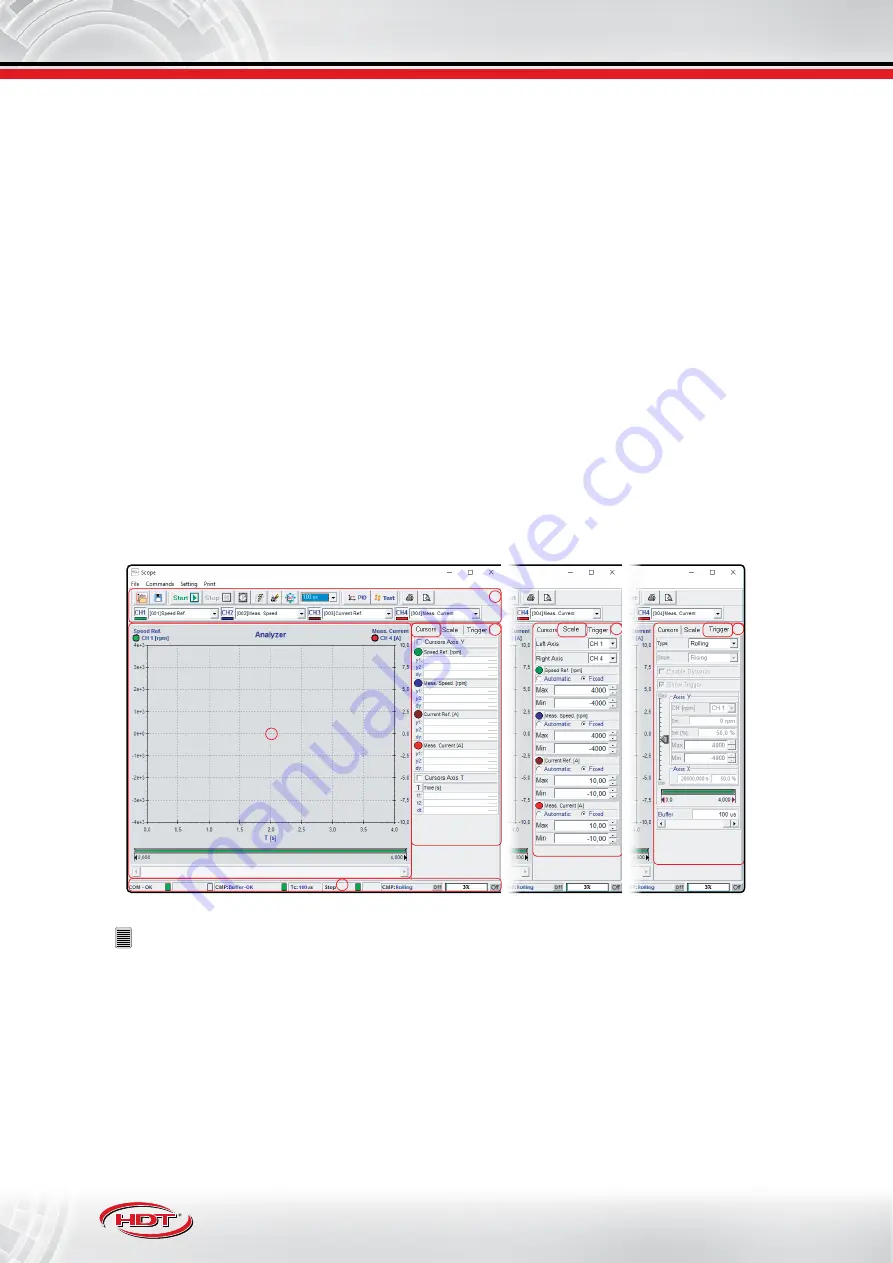
94
Installation and user guide
Rev: 4.0
NTT 240/460
Operation mode
6.14 Scope function
Available on Caliper software, Scope function allows to control drive several variables time trend. It can display up
to 4 channel at a time and with a sampling rate up to 100
μ
s.
Scope main screen consists of:
1. a
toolbar
located at the top allows to:
•
open and save in a used PC folder and stamp all display traces.
•
provide Start and Stop acquiring, Refresh data and Erase data commands.
•
configure channels to display and sampling time.
•
configure PID regulator looking at traces during operation mode.
2. a
state bar
located at the lower allows to monitor drive state and to provide information about set trigger
type and about PC RAM buffer usage, to receive and trasmit via USB2.0 port.
3. a
display
allows to visualize acquired enable channel data, creating a amplitude-time graph on an adjustable
time base, depending on sampling time. It allows graphic zoom by selecting the interested area with the
PC mouse.
4. a
setting window
located at the right of display, divided into 3 different item, allows to:
•
enable misure cursor for timebase axis (X axis) and for amplitude axis (Y axis) and to check the realtime
value.
•
define visualized variables amplitude resolution (automatic or manual setting).
•
set desired trigger topology between ‘Rolling’, ‘Automatic’ and ‘One Shot’.
Scope main window is shown below, divided into three separated views for the
setting window
:
4
4
1
2
3
4
!
NOTES:
•
Timebase resolution is adjustable up to a total display time equal to 60000 seconds, depending to
choosen sampling time. Buffer is FIFO type, so for this reason first data stored will be lost if monitoring
continues besides full time elapsed.
•
Channels are enabled pushing ‘
CHx
’ key related to desired channel.
•
If comunication buffer, visible on state bar, exceed maximun size (100%), the transmission crashes.
•
To mark traced, a color palette is available, pushing the coloured round visible near Channel
identification in toolbar.
Summary of Contents for NTT 240
Page 129: ......






























